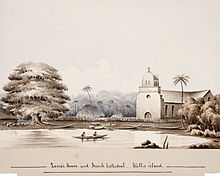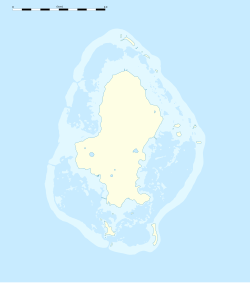| Mata'utu Cathedral | |
|---|---|
| Cathedral of Our Lady of the Assumption, Mata-Utu | |
| Our Lady of Good Hope Cathedral | |
 | |
| 13°16′58″S 176°10′24″W / 13.28278°S 176.17333°W | |
| Country | |
| Denomination | Roman Catholic |
| History | |
| Status | Cathedral |
| Dedication | Our Lady of the Assumption |
| Architecture | |
| Functional status | Active |
| Administration | |
| Archdiocese | Archdiocese of Nouméa |
| Diocese | Diocese of Wallis et Futuna |
| Clergy | |
| Bishop(s) | Susitino Sionepoe |

Cathedral of Our Lady of the Assumption (French: Cathédrale Notre-Dame-de-l'Assomption de Matâ'Utu), also known as Matâ'Utu Cathedral, is a Roman Catholic cathedral, and a national monument of France, located in the town of Mata Utu on Uvea, in Wallis and Futuna. It is a dominant edifice in downtown Mata-Utu town, capital of Wallis Island. It bears the royal insignia of Wallis, a Maltese cross between its towers.[1] The cathedral is also known as the "Our Lady of Good Hope Cathedral".[2] It is the seat of Bishop Susitino Sionepoe.[3]

